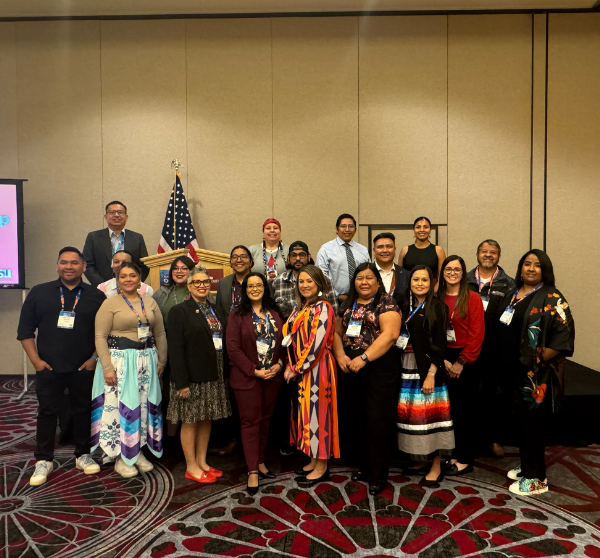Indigenous Leadership Academy: Empowering Indigenous Leaders. Advancing Sovereignty. Inspiring Changes.
The Indigenous Leadership Academy (ILA) is a groundbreaking and nationally recognized leadership development program dedicated to cultivating Indigenous change-makers through a curriculum rooted in Indigenous ways of knowing, being and leading.
Grounded in culturally responsive approaches, ILA honors traditional leadership values while preparing participants to meet the complex challenges facing Tribal Nations today. The program centers on community-driven learning, dialogue, and relationship-building that empowers emerging leaders to lead with integrity, accountability and cultural strength.
What sets ILA apart is its proven impact. Since launching in January 2022, ILA has maintained an impressive 92% completion rate and an average acceptance rate of just 51%, reflecting a selective yet deeply supportive program designed for success. This outstanding achievement is a direct result of ILA’s commitment to Indigenous-centered education that values collective growth, community connection and self-determination.
From Arizona to Alaska, ILA continues to expand its reach and reputation as a model for Indigenous leadership education.
Since its founding, ILA has built a powerful network of Indigenous leaders:
- 196 participants
- Representing 94 Tribal Nations
- Across 31 states and Washington, D.C.
- 50% of participants from Arizona
ILA is proudly sponsored by the National Congress of American Indians, Tufts University, the National Center for American Indian Enterprise Development, the Burton Family Foundation, and Arizona Public Service (APS). Together, these partners help ensure that ILA continues to advance Indigenous-led leadership, innovation, and sovereignty across Indian Country and Tribal communities.






